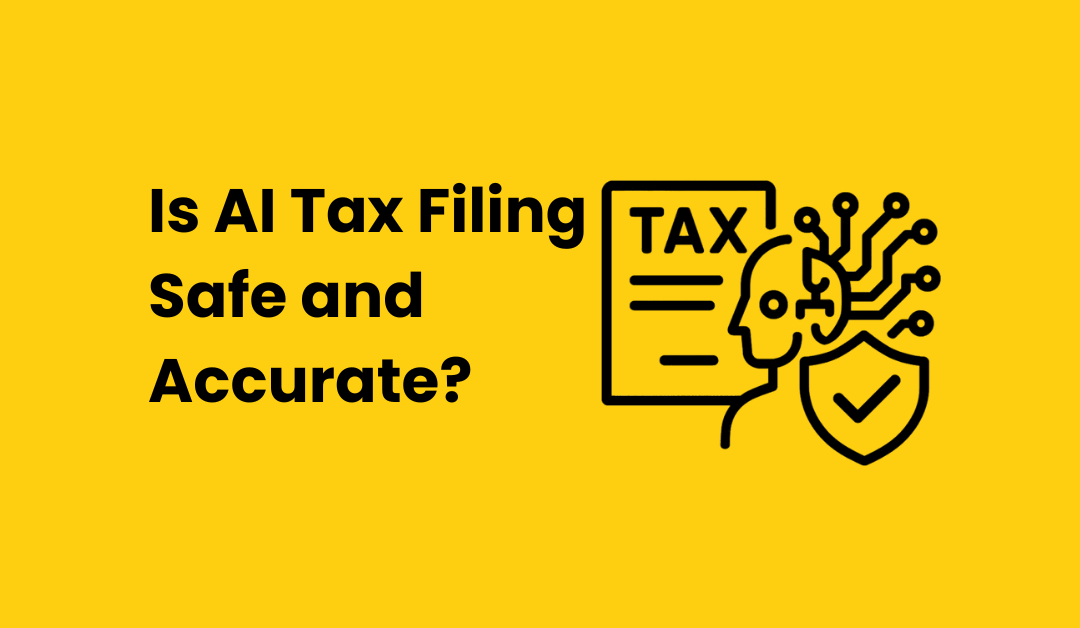With the rise of AI tax preparation tools, many taxpayers are asking the same questions: How accurate is AI tax preparation? and Is AI safe for tax filing? This article explores the reliability of AI-powered tax software, the risks and safeguards you should know, and how these tools compare to traditional tax filing methods. Read on to learn whether AI can truly be trusted to handle your taxes—and how to use it wisely.
The Rise of AI in Tax Filing
Artificial Intelligence (AI) is transforming industries across the board, and tax preparation is no exception. From automating complex calculations to analyzing deductions, AI tools promise speed, accuracy, and convenience. But with something as important as your taxes, you need to ask:
- How accurate is AI tax preparation?
- Is AI safe for tax filing?
These are not just marketing questions—they’re critical to making informed decisions about your financial security.
How Accurate Is AI Tax Preparation?
AI tax software is designed to process vast amounts of tax data, IRS guidance, and case law, then apply it to your situation. In many cases, AI can be more consistent and less error-prone than manual preparation. According to the IRS, millions of tax returns are rejected each year due to human error—typos, miscalculations, or missing forms.
AI tools help reduce these mistakes by:
- Automating calculations with fewer manual entry errors.
- Flagging inconsistencies in tax return data.
- Cross-referencing IRS rules in real time.
That said, no system is perfect. AI tools rely on the data you provide. If income documents, expense records, or deductions are entered incorrectly, the results will be inaccurate—just as they would be with a human preparer.
Is AI Safe for Tax Filing?
Data security is one of the biggest concerns for taxpayers using AI tax tools. A safe platform should provide:
- Encryption for data transfer and storage.
- Strict privacy policies ensuring no Personally Identifiable Information (PII) is stored without consent.
- Regular security audits for compliance with federal and state standards.
When choosing an AI tax filing tool, make sure it follows IRS security guidelines for electronic tax return originators (e-file providers).
Benefits of AI Tax Filing
If implemented responsibly, AI can enhance both accuracy and safety:
- Faster turnaround: Returns can be prepared and filed in minutes.
- Improved accuracy: Automated checks help reduce IRS rejections.
- Tax-saving insights: Some AI tools also recommend deductions and strategies you may miss.
- 24/7 availability: Unlike human preparers, AI tools don’t clock out.
When to Be Cautious
While AI tax tools are advancing, complex cases—such as business owners, high-net-worth individuals, or multi-state filers—may still benefit from human review. AI excels at standard returns but may not fully capture nuanced tax strategies. A hybrid approach—AI for research and calculations, paired with a CPA for oversight—can provide the best results.
Resources & Next Steps
For more information on e-file security, visit the official IRS e-File Provider Security Requirements.
Want to explore advanced AI-powered tax research and planning tools designed for professionals? Check out Hive Tax AI and discover how our AI platform combines speed, accuracy, and security for smarter tax research and planning.
Final Thoughts
So, is AI safe for tax filing? Yes—when you choose a trusted provider that prioritizes compliance and security. And how accurate is AI tax preparation? In many cases, more accurate than manual entry, provided your data is correct.
AI is not here to replace tax professionals—it’s here to empower them and taxpayers alike. If you’re ready to embrace the future of tax filing with confidence, consider trying an AI-driven tax research or planning tool today.
Ready to see how our AI tax tool AI tax research and AI tax planning tools can elevate your practice?

